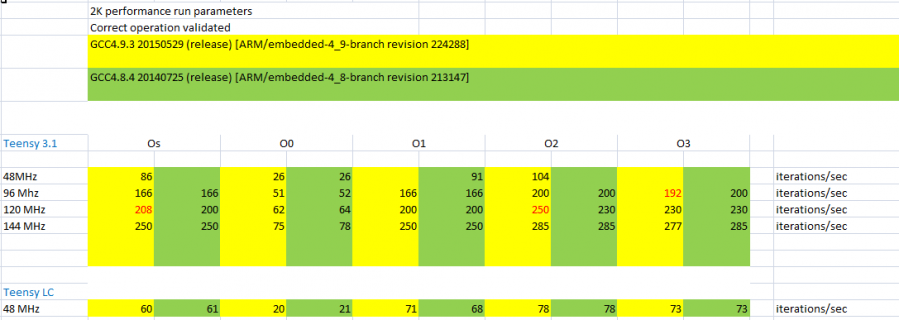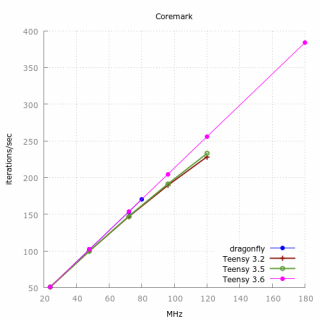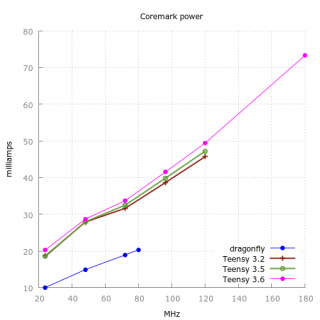Hi,
I ported the Coremark Benchmark to Arduino.
My goal was to get a reliable comparison of the performance between different compiler-versions.
I did a first run today, with the newest "GCC4.9.3 20150529 (release) [ARM/embedded-4_9-branch revision 224288]" toolchain from launchpad, which is maintained by ARM-employees.
Tomorrow, i want to run the same tests with the "official" Teensyduino compiler-version, which is 4.8.4
Edit: Done
These are the values:

Disclaimer:
Important: These are NOT Coremark Values. I had to change the source a little bit, to be able to compile it for Arduino. Therefore, it is not allowed to call my test "Coremark" (if i understood the licence correctly). And unfortunately, I'm not allowed to publish the source (i think).
The main change was to rename the files from *.c to *.cpp and replace printf with Serial.printf. Both changes should'nt have any impact... but to be sure: Don't call it coremark, please.
I learned: -O3 is not good for our Targets. I think there waits some work for the GCC-Guys....
I'll do more tests in the next days with more detailed optimization-options.
I ported the Coremark Benchmark to Arduino.
My goal was to get a reliable comparison of the performance between different compiler-versions.
I did a first run today, with the newest "GCC4.9.3 20150529 (release) [ARM/embedded-4_9-branch revision 224288]" toolchain from launchpad, which is maintained by ARM-employees.
Tomorrow, i want to run the same tests with the "official" Teensyduino compiler-version, which is 4.8.4
Edit: Done
These are the values:

Disclaimer:
Important: These are NOT Coremark Values. I had to change the source a little bit, to be able to compile it for Arduino. Therefore, it is not allowed to call my test "Coremark" (if i understood the licence correctly). And unfortunately, I'm not allowed to publish the source (i think).
The main change was to rename the files from *.c to *.cpp and replace printf with Serial.printf. Both changes should'nt have any impact... but to be sure: Don't call it coremark, please.
I learned: -O3 is not good for our Targets. I think there waits some work for the GCC-Guys....
I'll do more tests in the next days with more detailed optimization-options.
Last edited:




